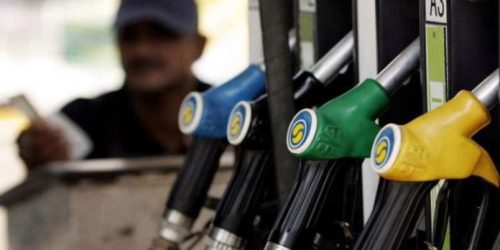As tensions boil over in Europe after Russia’s invasion of Ukraine, the prices of petroleum products in Pakistan are likely to surge by up to Rs9.59 per litre from March 1, 2022. In mid-February, the government has already made a record increase in prices of petroleum products, when it raised the price of petrol by Rs12.03 per litre to Rs159.86 per litre.
On February 16, the crude oil price stood at $94 per barrel in the international market. As Russia launched an attack on its neighbour, the price of oil crossed $100 a barrel for the first time since 2014 with Brent crude touching $105 on Thursday. With the beginning of war, European nations and the United States have slapped stringent sanctions on Russia. Industry experts are of the view that during the current post-Covid economic recovery, Russia wants to enhance its revenue from the oil market with the help of Ukrainian oil.
However, they say the US will try to limit Russia’s earnings by taking aggressive measures aimed at pushing down oil prices in the global market. The US has huge shale oil reserves but it is far more expensive than crude oil. Still, Washington may try to flood the global market with shale oil in a bid to bring prices down and dent Russia’s revenue, experts say. As an alternative, the US will try to reverse Iranian sanctions and open its oil market to slash crude prices to $65 per barrel. If no option works and the ongoing situation continues, the prices of crude oil may soar to $125 per barrel in the global market, they say. “Such a development may push prices of local petroleum products to over Rs200 per litre,” an expert said. The price of petrol may go up by Rs9.59 to Rs169.45 per litre.
Petrol is currently sold for Rs159.86 per litre. Pakistanis use petrol as an alternative to compressed natural gas (CNG) in small cars as well as in motorbikes. In Punjab, consumers are forced to buy expensive CNG because retail outlets use imported liquefied natural gas (LNG). The increase in the price of petrol will adversely impact the purchasing power of low-income group which is already coping with high inflation. The government is likely to increase the price of high-speed diesel by Rs8.52 to Rs162.67 per litre.
Its current price is Rs154.15 per litre. Agriculture and transport sectors consume diesel, therefore, any increase in its price will impact the lives of the masses due to inflationary pressure. In mid-February, the government increased the price of diesel by Rs9.53 per litre. The price of kerosene oil may go up by Rs8.01 to Rs134.57 per litre against the current price of Rs126.56. This fuel is used for cooking purposes in remote areas of Pakistan where liquefied petroleum gas (LPG) is not available. The price of light diesel oil may be increased by Rs7.70 per litre. Its price currently stands at Rs123.97 per litre and after the projected increase, it may surge to Rs131.67 per litre.
This fuel is used by industries. In a statement issued on February 16, the government claimed that it was facing a revenue loss of Rs35 billion on account of petroleum levy and general sales tax waiver. However, it failed to justify why it was charging hefty taxes on petroleum products. In a statement, the finance ministry said that prices of petroleum products in the international market were depicting a sharp increase and at present, they were at the highest level since 2014.







